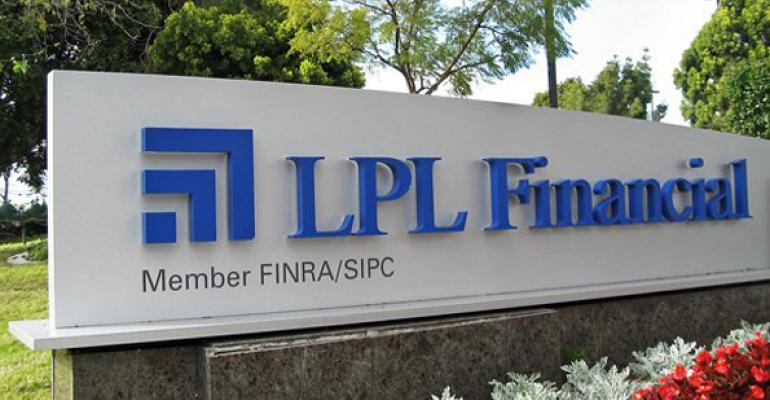LPL Financial will relocate its Fortigent operations from Rockville, Md. to the company’s Charlotte, N.C. office to consolidate resources focusing on high-net-worth clients.
“The change will allow LPL to bring together employees supporting LPL’s high-net-worth business into our primary office location, which we feel will increase efficiency and collaboration,” said Brett Weinberg, LPL spokesman.
Fortigent, acquired by LPL in April 2012, provides turnkey asset management, performance reporting, technology and manager research and due diligence to RIAs, banks and trust companies, as well as to breakaway brokers who serve high-net-worth clients. The acquisition gave LPL a larger share of the RIA and high-net-worth market.
Fewer than 10 Fortigent employees were immediately terminated, Weinberg said, and the majority of the unit’s Rockville-based employees will be asked to stay on until a later date or offered relocation to Charlotte. The company would not speculate on the total number of jobs that would be impacted by the move.
“Individuals whose employment with LPL ends as a result of the decision to relocate positions to Charlotte will be treated fairly and in a manner consistent with our values,” Weinberg said. “This will include being offered a severance package and outplacement assistance.”
Fortigent’s employees who are offered specific positions in Charlotte will join LPL exutive vice president Matt Enyedi, who oversees the RIA group.
For the last six to 12 months, the firm has been working on integrating its HNW services, including the RIA custody unit, a "high-net-worth solutions group" and a private trust company, Enyedi said. In the fourth quarter 2014, the firm also launched its High-Net-Worth Consulting Services, which will utilize Fortigent’s proposal tools and back-end reporting.
Last summer, Scott Welch, co-founder and chief investment officer of Fortigent, left the firm.
An SEC filing said the restructuring will cost LPL $9 million, including $4.5 million in employee severance, $2 million in relocation and related costs, $1.3 million in lease restricting charges, and $1.2 million in non-cash impairment charges. But the company expects the move to add $3 million to its adjusted earnings in 2016 and beyond.




